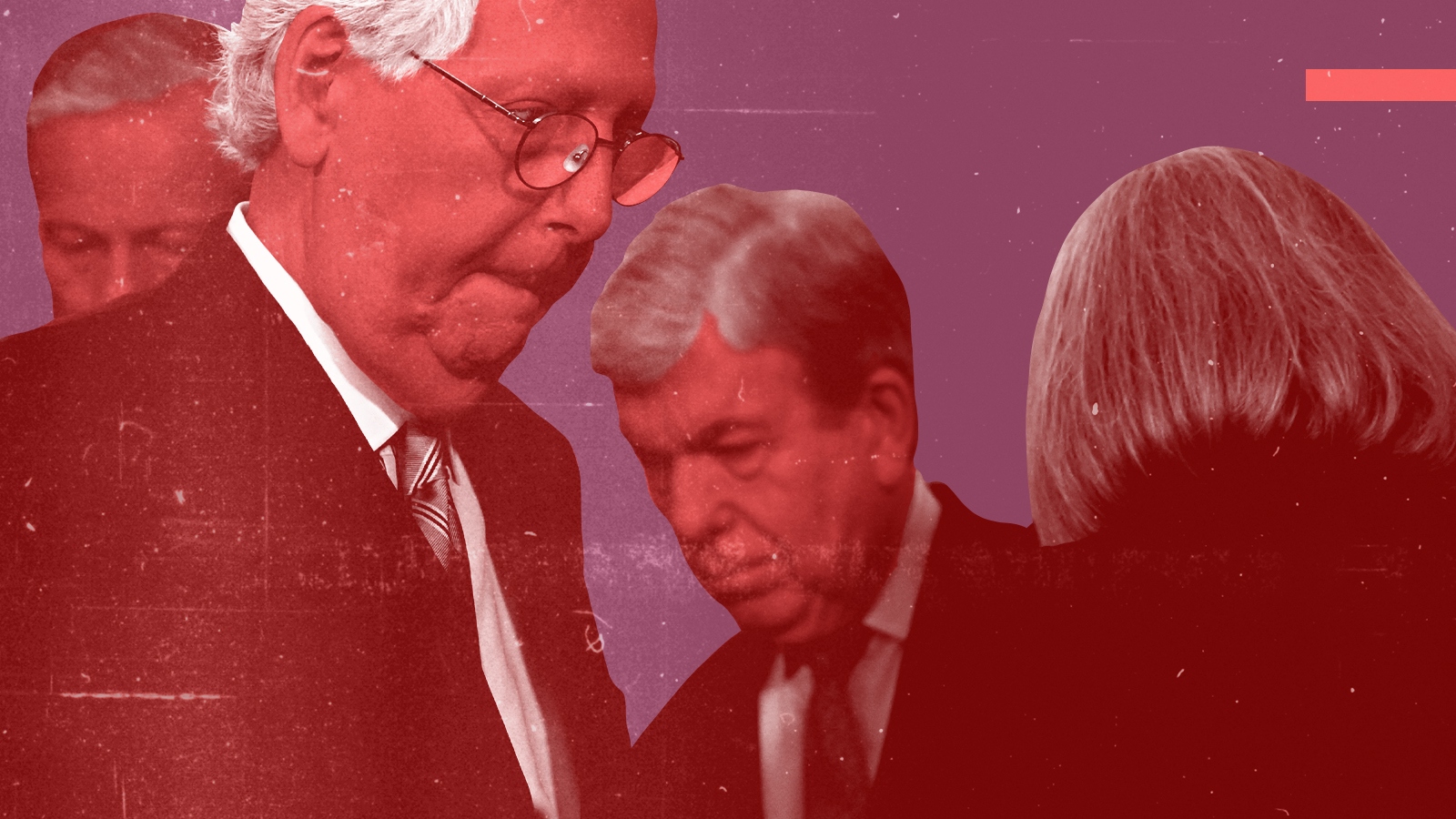The GOP virtue signals on the debt ceiling


A free daily email with the biggest news stories of the day – and the best features from TheWeek.com
You are now subscribed
Your newsletter sign-up was successful
Perhaps the oddest and most frustrating aspect of the current debt ceiling fight is that most Republicans don't actually want to stop Democrats from raising the debt ceiling. They clearly hope to give new heft to the same old "tax-and-spend" accusations that GOP politicians have long used against their rivals. But Senate Minority Leader Mitch McConnell (R-Ky.) and his conservative colleagues aren't actually nihilistic enough to want the country to stumble into default. They just want to make life difficult for Democrats.
"I mean, I'm not going to be a complete asshole about it," Sen. Lindsey Graham (R-S.C.) said Tuesday, explaining the strategy. "But I'm going to make them take some tough votes."
That's an open admission that the Republican filibuster of a debt ceiling hike is all for show. It's virtue signaling, and it's dangerous.
The Week
Escape your echo chamber. Get the facts behind the news, plus analysis from multiple perspectives.

Sign up for The Week's Free Newsletters
From our morning news briefing to a weekly Good News Newsletter, get the best of The Week delivered directly to your inbox.
From our morning news briefing to a weekly Good News Newsletter, get the best of The Week delivered directly to your inbox.
Conservatives often use "virtue signaling" as a term of derision, a way of suggesting progressives are more interested in being seen taking the right stances than in truly doing anything. But signaling is actually a bipartisan tactic. Right now, Republicans are signaling to their voters that they're strongly opposed to growing the national debt — even though they're partly responsible for our need to raise the ceiling. The government is still borrowing money to cover the cost of former President Donald Trump's big tax cuts in 2017.
Such showy hypocrisy can be frustrating, but it's often relatively harmless. And while filibusters are also obnoxious, they're usually intelligible in terms of policy outcomes. In the case of the debt ceiling, however, marrying fiscal virtue signaling to the filibuster heightens the risk of an outcome — default — that even the filibusterers don't seem to desire.
Republicans could have their cake and eat it too by dropping the filibuster (and its supermajority vote requirement) and opposing the debt ceiling hike on a straight party-line vote, which could then be broken by Vice President Kamala Harris. In the age of perpetual obstruction, though, GOP leaders appear to believe that only a maximum display of opposition will do. They may mean it only to signal their virtue, but the consequences could be all too real.
A free daily email with the biggest news stories of the day – and the best features from TheWeek.com
Joel Mathis is a writer with 30 years of newspaper and online journalism experience. His work also regularly appears in National Geographic and The Kansas City Star. His awards include best online commentary at the Online News Association and (twice) at the City and Regional Magazine Association.
